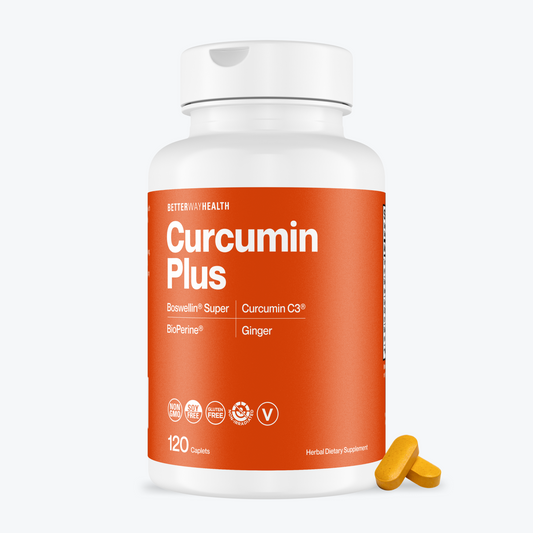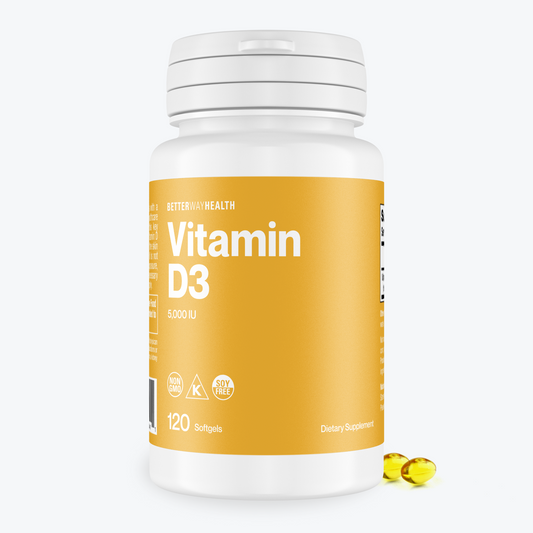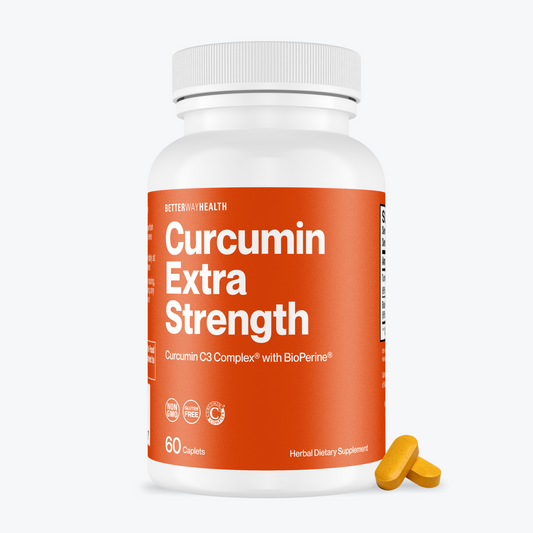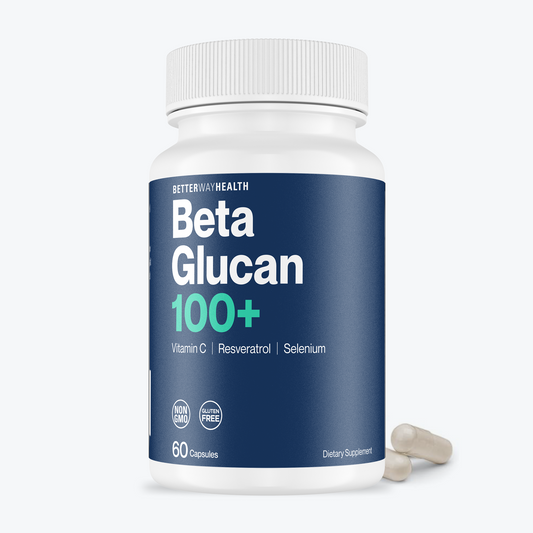Is Hyaluronic Acid Good for Oily Skin?

Oily skin is more than just a cosmetic concern. Many people suffer from oily skin and are faced with a wide variety of treatments, yet some may be more effective than others.
In this resource, we will be talking about what oily skin is and its common causes. We will also be learning more about hyaluronic acid, its impacts on oily skin, and how topical beta glucan combined with HA can be an effective treatment for an oil-free, healthy skincare routine.
Understanding Oily Skin and Its Causes
What is oily skin?
Oily skin is the result of overactive sebaceous glands that produce excess natural oils, leading to a shiny or greasy appearance on your skin. (1)
Studies suggest that there can be many reasons for oily skin, including heredity factors, humidity, and stress.
Hormonal changes can also trigger these glands.
Oily skin is also one of the main causes of skin blemishes and acne due to the overproduction of sebum.
The Downside of Excess Oil Production
You may presume that having an abundance of oil would keep your complexion hydrated, but it can in fact lead to issues like clogged pores and skin more susceptible to breakouts.
When dead cells mix with this surplus oil, they form plugs that block hair follicles, creating white or blackheads.
Inflamed bumps or pimples occur when bacteria invade these blocked follicles.
Fighting Back Against Oily Skin: What Works?
Treating oily skin involves controlling its production without stripping away necessary moisture.
This delicate balance requires a careful selection of skincare products containing ingredients known for their ability to regulate sebum output while keeping the surface hydrated.
With understanding comes empowerment. In our next section, we will dive into one such ingredient – hyaluronic acid.
Hyaluronic Acid and Its Role in Skincare
How does hyaluronic acid work?
Hyaluronic acid, a key skincare ingredient, is more than just a buzzword. It contains a substance known as a ‘humectant’ that is able to attract and retain moisture similar to a sponge. (2)
This high-molecular-weight polysaccharide originates from the connective tissue extracellular matrix of our bodies.
The beauty industry has harnessed its power to create various hyaluronic acid products for topical applications that promote skin health.
The Science Behind Hyaluronic Acid
But what makes HA (hyaluronic acid) so special?
Hyaluronic acid helps decrease sebum production in oily skin types according to scientific studies. (3)
This suggests it can be a successful strategy for moderating the oiliness of the skin without causing dryness or aggravation.
Skin Benefits of Hyaluronic Acid
For those seeking to improve their skin health, hyaluronic acid is an ideal solution.
This incredible skincare component is a revolutionary solution for any skin type, even those with oily and acne-prone complexions.
- Promotes skin hydration
- Creates firm skin
- Contains anti-aging properties
- Could reduce the appearance of wrinkles
The Magic of Hyaluronic Acid Serums
Hyaluronic acid serums are like magic potions that work wonders on the skin's surface. They have an incredible ability to keep your skin hydrated.
Maintaining Moisture Balance with Hyaluronic Acid Products
Hyaluronan or hyaluronic acid helps in maintaining moisture balance by attracting water molecules from the environment onto the surface of our epidermis (outer layer).
It can retain over 1000 times its weight in water. This means it's not just great at keeping dry patches at bay but also helping control oily areas.
Fighting Wrinkles and Promoting Wound Healing: A Two-in-One Solution
Apart from hydration benefits, did you know this natural compound plays a crucial role in wound healing?
According to studies published by Cosmet Dermatol, it has been found effective in reducing wrinkles too.

Is Hyaluronic Acid Good for Dry Skin?
Studies have shown that within the complicated biological process of skin aging in the human body, one of the most common side effects is skin dryness. (3)
As HA is extremely effective in maintaining skin hydration, it can naturally boost a healthy skin barrier by reducing dry skin and boosting skin moisture.
Can Hyaluronic Acid Cause Skin Allergy?
Skin allergies can result in excessive skin itching, redness, and even swelling. As hyaluronic acid fillers are made up of substances similar to those created in the human body, it is unlikely to cause allergic reactions. (4)
However, if you experience any form of skin redness, itchiness, or skin dryness after using HA, be sure to contact your doctor or dermatologist as soon as possible.
Discover more: Hyaluronic Acid Allergy: Causes, Side Effects, and Treatment
Is Hyaluronic Acid Good for Acne?
As hyaluronic acid contains hydration properties without clogging the skin's pores, it may be suitable for acne. One of the largest causes of acne is excessive oil production, also known as the overproduction of sebum.
Sebum is the body’s response to keeping the skin moisturized.
Dive deeper: Is Hyaluronic Acid Good for Acne
Natural Alternatives to Hyaluronic Acid
If you have tried hyaluronic acid before and need a few natural alternatives, here are five to look out for:
Vitamin E
Vitamin E is a class of fat-soluble vitamins that protect cells from damage. Many skin conditions, including eczema, psoriasis, and dry or itchy skin, may benefit from vitamin E oil. Additionally, it might promote wound recovery, wrinkle prevention, and scar reduction.
Glycerin
Known to be the most effective humectant due to its ability to penetrate the skin. Glycerin may help to protect your skin and prevent the growth of bacteria.
Vitamin C serum
Vitamin C serum offers health benefits for your skin, such as possible protection from sun damage as well as promoting the production of collagen. Vitamin C has a trusted safety profile as most people are able to use it long-term without experiencing adverse effects.
In addition to these natural HA alternatives, there is one that has taken the world by storm...
Introducing Beta Glucan - A Trusted Treatment for All Skin Types
Beneath its unassuming guise, Beta glucan is revolutionizing the beauty industry with its acclaimed efficacy as a topical treatment for all skin types.
This natural compound has proven its effectiveness as a topical treatment that benefits all skin types—from dry to sensitive to oily ones.
A topical application clinical study for women showed a 27% improvement in skin hydration, a 59% improvement in anti-aging facial wrinkles, as well as a 29% improvement in elasticity and skin firmness within a period of 8 weeks.
Suggested reading: What Is Beta Glucan?
The Power of Beta Glucan Creams
Ever wondered how beta glucan creams work?
These potent formulations may enhance your skin cells' defense mechanisms against external factors like UV rays and pollutants.*
Beta glucans not only aid in defending skin cells from outside elements, but they also help maintain the skin's moisture and suppleness.*
Nurturing Your Skin's Health with Beta Glucan Skin Cream
-
Aiding wound healing – Just like hyaluronic acid, beta glucans are known for their role in potentially accelerating wound recovery by stimulating collagen production and promoting cell turnover. This helps replace dead skin cells faster.*
-
Fighting aging signs – By improving hydration levels on the surface of your dehydrated or mature skin, glucan may reduce wrinkles while enhancing elasticity and healthier skin.*
-
Maintaining oil balance – For those struggling with sebaceous glands overproducing oils, causing acne-prone conditions, applying beta glucan skin cream could be beneficial due to its ability to control excess oil without stripping away necessary moisture from the skin.*

Additional Benefits of Beta Glucan Replenishment Cream
Beta glucan replenishment cream offers a variety of additional benefits:*
- Acts as an anti-inflammatory agent
- Stimulates collagen synthesis and cellular proliferation
- Soothes damaged skin
- Helps repair damage from photo-aging
- Promotes wound healing
- Helps reduce the signs of aging and refreshes tired skin
- Increased healing of bed sores (decubitus ulcers) and dark spots
- Has been tested extensively and shown to be safe
Incorporating Hyaluronic Acid and Beta Glucan into Your Skincare Routine
A consistent skincare routine is essential for achieving healthy skin, and hyaluronic acid with beta glucan are two powerful ingredients to consider.
Not all skincare products are created equal. Not only does our beta glucan skin cream contain the purest form of beta glucan with real aloe vera, but it includes four additional hyaluronic acid compounds:
1: Sodium Hyaluronate
This works like a sponge to help the skin hold on to water, which makes cells more flexible and plump. HA is known for being able to hold as much as a thousand times its own weight in water.
It is also known to improve the appearance of fine lines and reduce the signs of aging.
2: Hydrolyzed Sodium Hyaluronate
This is an even smaller HA molecule that can get deep into the skin to feed it and hold water to make it less wrinkled. It is a more effective antioxidant than HA.
It has the ability to provide after-sun healing and better sun protection.
3: Sodium Hyaluronate Acetylated
Sodium Hyaluronate Acetylated is another type of hyaluronic acid that remains on the skin's surface to keep water from evaporating, restore skin hydration, and make the skin softer with a more flexible skin feeling.
It is also less sticky and has a better look than regular HA.
4: Sodium Hyaluronate Cross Polymer
This special HA mesh can hold 5 times more water than "normal" HA. This cross-linked, water-filled HA gel acts as a hydrating serum that makes a smooth film on the skin and releases any trapped water. This promotes skin moisture for longer periods of time.

Final Thoughts on Managing Oily Skin with Hyaluronic Acid & Beta Glucan
We've journeyed through the landscape of oily skin and its causes.
We have also discussed how overactive sebaceous glands can lead to excess production of natural oils, clogging pores, and making your skin prone to acne.
The Power Duo: Beta Glucan and Hyaluronic Acid
In our quest for solutions, we discovered hyaluronic acid—a potent skincare ingredient with immense promise for managing oiliness while keeping the skin hydrated.
Beta glucan emerged as another powerful ally for all skin types—from dry to sensitive to oily ones. It works by enhancing your skin cells' defense mechanisms against external factors like UV rays while maintaining supple hydration levels.*
FAQs
Is hyaluronic acid good for oily acne?
Yes, hyaluronic acid can be beneficial for oily acne-prone skin. It helps control oil production and keeps the skin hydrated without clogging pores, reducing the likelihood of breakouts.
Is vitamin C or hyaluronic acid better for oily skin?
Both have unique benefits. Vitamin C brightens and evens out skin tone while fighting free radicals. Hyaluronic Acid hydrates and controls oil production. Using both in your skincare routine could yield optimal results.
Is hyaluronic acid or salicylic acid better for oily skin?
Hyaluronic Acid is great at hydrating and controlling sebum production, whereas Salicylic Acid is a powerful exfoliant that unclogs pores, making it ideal for treating existing acne. (5)
What are the unique benefits of beta glucan for skin?
Beta glucan replenishment cream is able to penetrate all layers of the skin to replenish and maintain skin moisture. Amongst others, beta glucan skin cream can promote the healing of wounds, act as an anti-inflammatory agent, stimulate collagen synthesis, and soothe sensitive skin.*
(*These statements have not been evaluated by the Food and Drug Administration. This product is not intended to diagnose, treat, cure, or prevent any disease.)
Still have questions?
Our ACES Team is always there to help.









